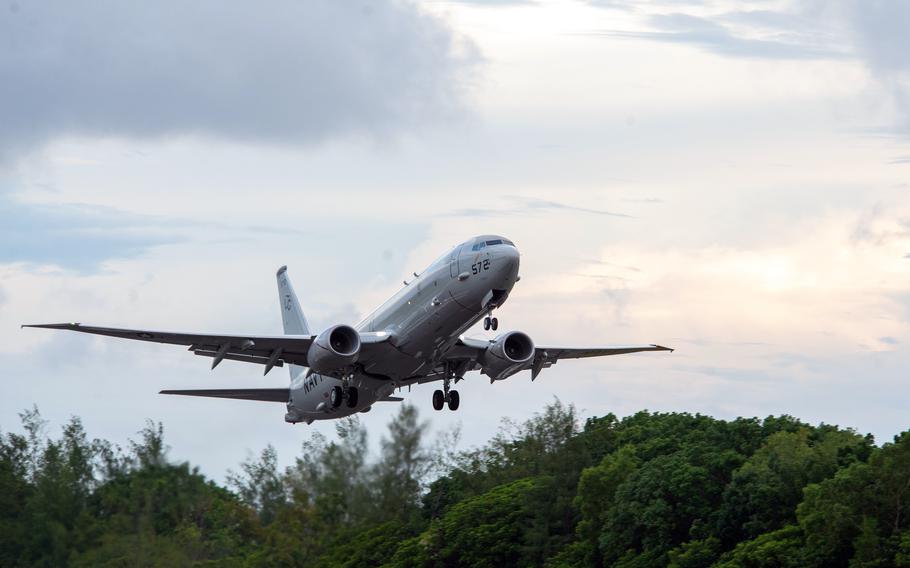
A U.S. Navy P-8A Poseidon takes off from Roman Tmetuchl International Airport in Koror, Palau, July 9, 2022. (Juan Sebastian Sua/U.S. Navy)
The Chinese military went on “high alert” Friday as a U.S. Navy reconnaissance aircraft flew through international airspace in the Taiwan Strait, according to statements from both countries.
A P-8A Poseidon flew southwest through the 110-mile-wide channel that separates mainland China from Taiwan as it transited from the East China Sea to the South China Sea, U.S. 7th Fleet spokesman Lt. j.g. Luka Bakic told Stars and Stripes by email Tuesday.
The Navy described the transit as a demonstration of the “United States’ commitment to a free and open Indo-Pacific,” according to a news release Friday.
China, however, viewed the flight as proof that the United States is a “disruptor of peace and stability in the Taiwan Strait and a creator of security risks,” Senior Col. Shi Yi, spokesman for China’s Eastern Theater Command, said in a news release Saturday.
Beijing views self-ruling Taiwan, which split from China in 1949, as a breakaway province that must be reunified with the mainland.
China also scrambled fighter jets to “follow and monitor” the Poseidon, the defense ministry said.
China’s response didn’t affect the operation, Bakic said, and “all interactions with foreign military forces during the transit were consistent with international norms.”
He described the trip as a “routine transit” on a route that Navy ships and aircraft have consistently used “for many years.”
The Navy regularly sends warships through the strait as a means of upholding “the navigational rights and freedoms of all nations.” Navy flyovers of the strait, while less common, are intended to deliver the same message, according to 7th Fleet’s news release.
Beijing, in return, typically condemns the transits as provocative.
The guided-missile destroyer USS Milius passed through the strait on April 16, less than a week after China concluded a three-day exercise in the region to protest meetings between Taiwan President Tsai Ing-wen and U.S. politicians on April 6 and April 8.
A Navy P-8A aircraft made the same trip on Feb. 27, prompting a similar response from China’s military. Shi Yi, at the time, issued similar criticism and said the flight “deliberately disrupted the regional situation.”